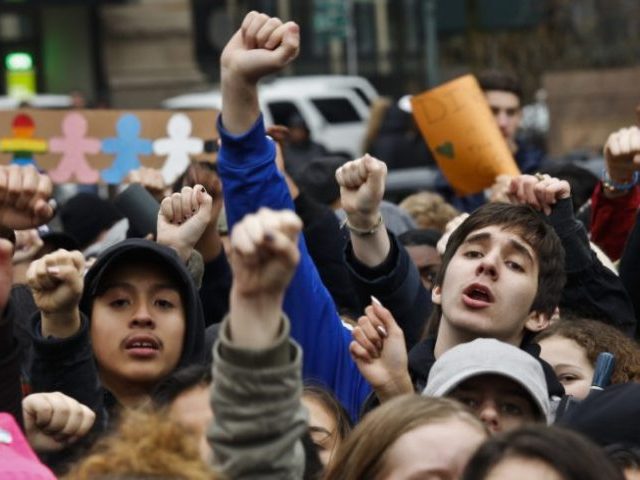Freshmen at Columbia University were forced to attend a three-hour workshop on identity politics as part of their orientation this fall.
This year, freshmen at Columbia University were forced to attend a three-hour workshop entitled “Under1Roof,” which was largely focused on identity politics. The description for the workshop states that its purpose is to“foster inclusive communities by engaging with the social identities we all bring to campus.”
The event, which took place in August, was first reported on by The College Fix. A freshman who attended the workshop reported that all students were asked to speak how they feel their identities might limit “their opportunities or access in coming to campus.”
According to the student’s account, the workshop asked the students to place sticky notes next to signs for each identity marker. For example, Hispanic students would place a sticky note next to the “Hispanic” sign. At the end of the exercise, the students were asked to stand by the identity sign that they most identified with.
“They had signs around the room for each category, and they asked us to put up our sticky notes corresponding to each one (all the race ones under one sign, etc). We then were asked to walk around and look at each section to gain a sense of the diversity of the group in the room (we were like a group of twenty-something students),” the student continued. “It was like a gallery, everyone silently surveying the sticky notes. We were then asked us to stand by the social identity category which we’re personally ‘most aware of’ coming to campus, and people volunteered to explain their choices. We then stood by the category which we felt limited our opportunities or access coming to campus. It was a very interesting experience.”
Perhaps in anticipation of questions over the decision to make the workshop mandatory, a section of the Columbia website attempts to explain why the event is beneficial to the community.
Everyone – no matter how they identify – brings to campus different experiences, knowledge bases, ideologies, and beliefs. They oftentimes are shaped and informed by our social identities (that is, race, religion/ spirituality, socio-economic class, gender identity, ethnicity, and so forth). We all have multiple identities and experiences that we bring to Columbia. Acknowledging these differences is not about separating people but about understanding the social realities and power dynamics that exist and that have prevented real connections between communities. Once we can better understand this, we can more substantively make connections and be better, more informed allies to one another.
Hopefully the student’s future use of sticky results will be to mark places in books and make notes — the traditional college experience.

COMMENTS
Please let us know if you're having issues with commenting.